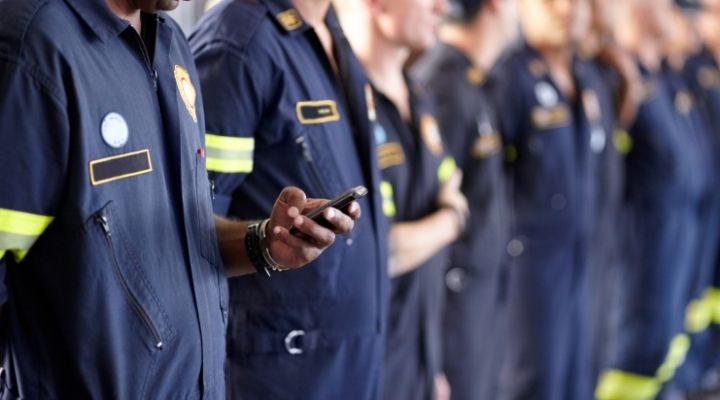First responders are critical to our communities. They are the first people on the scene in emergencies, and they save lives every day. The work that these professionals do is often thankless, but it’s vitally important. In this article, we’ll discuss what first responders do, how they can help you prepare for emergencies before they happen, and why their job is so vital to all of us.
Who Is Considered a First Responder?
First responders are police officers, firefighters, and EMTs. They can be paid professionals or volunteers who serve their communities in times of need. First responders get to emergencies quickly because they usually live very close by—in many cases, these people work at the same fire stations where ambulances respond when someone dials 911 for medical help.
The first community members on the scene during an emergency can save lives if it isn’t already too late. Firefighters often go into burning buildings without any protective gear so that they can do whatever is possible to rescue victims trapped inside while waiting for paramedics with breathing masks and other safety equipment to arrive. Police officers put themselves between dangerous criminals and innocent civilians every day, sometimes even putting their own lives in danger.
Trained for Emergencies
All first responders are trained to deal with different kinds of emergencies, but they also learn the dangers of their job and how to protect themselves while on the scene at an emergency site. They can provide information about safety protocols for you or your family until help arrives, even if that’s just giving instructions over the phone during a medical emergency, because by then, it may be too late to do anything else besides ensuring police officers don’t arrive after gunshots have already been fired.
First responders give us hope when we feel hopeless; these brave individuals rescue people from burning buildings or save drivers whose cars flew off bridges into deep rivers below, all without knowing who is trapped inside or whether anyone will survive long enough for help to arrive. Responding quickly and providing aid in times of emergency may be the only thing first responders can do, but it makes all the difference for victims’ families who are left behind.
Keep Neighborhoods Safe
First responders keep our neighborhoods safe, so we don’t have to live in fear when walking down dark alleyways or while waiting at bus stops early in the morning. They’re there every day—even on holidays—to make sure that you get home safely after a night out with friends or family without having to worry about anything other than what movie to watch together next time you’re all hanging out at someone’s house.
First responders are the reason why it’s safe to let your children go outside and play while you’re busy making dinner, folding laundry, or catching up on work emails after taking a break from writing that important report at the office. They keep our communities safe for everyone who lives there because they know their jobs can be very dangerous; first responders spend every day working, so we don’t have to worry about anything bad happening in our neighborhoods.
How Communities Can Help First Responders
How can a community help first responders? If you or someone in your family wants to serve as a volunteer firefighter, paramedic, or police officer, make sure the training is offered locally. First responders give up so much just by choosing this line of work because it’s often dangerous, which means they could lose their lives every day when they go to work. They deserve our thanks—and our respect—for their sacrifice, and it’s important to be supportive of them and everything they do for us.
Volunteer
Being a first responder takes dedication and time that shouldn’t come at the expense of other important commitments like schoolwork for students who are still working toward their degrees. There might be opportunities to get academic credit while learning how to save lives on scene instead of attending another class that won’t teach them anything new about what they’ve already learned in high school.
If you or your family want to learn more about how becoming a first responder is possible, contact the local fire department, police station, or medical center in your community; someone there can connect you with opportunities if any exist. Supportive communities make all the difference when finding these kinds of volunteer positions because it takes commitment from everyone involved to work out successfully in the end.
Lend A Hand
During off-duty hours, police officers who spend months training as paramedics help save lives when responding at emergency sites where people are hurt. Firefighters often go into burning buildings without protective gear so that they can rescue victims trapped inside while waiting for their gear to arrive.
First responders are our only hope when we need help the most, and everyone in a community must be supportive of them to continue doing this important work without worrying about being mistreated by others who don’t understand how dangerous everything is from day to day.
Takeaway
In conclusion, first responders give us hope where there may seem like there isn’t any. They’re brave individuals who spend days and nights ensuring our safety every single time we leave home because nobody should have to live in fear of something bad happening during daily life while going about normal activities with family members or friends. Everyone has some responsibility toward keeping neighborhoods safe—even if you think yours isn’t all that significant—and it all adds up in the end.
First responders are critical to our communities because of what they do. They deserve our respect and support, especially when we learn more about everything involved with training for this kind of work.

